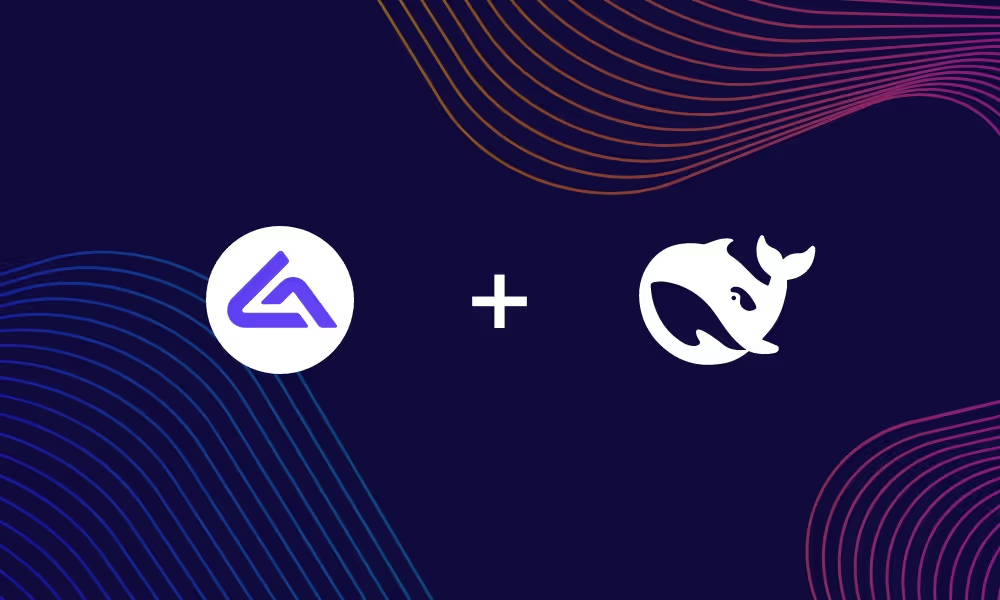The business benefits of Microsoft Copilot
Unlike generic AI tools aiming for broad applicability, Microsoft Copilot is purpose-built to enhance productivity and decision-making within the Microsoft 365 suite. With adoption rates exceeding 65% among Fortune 500 companies by March 2025, Copilot has demonstrated its ability to bridge knowledge gaps and streamline workflows across organizations.
Its rapid adoption stems from its deep integration, advanced AI capabilities, and focus on enterprise needs. By leveraging advanced large language models (LLMs), Copilot not only automates repetitive tasks but also offers contextual insights, empowering your teams to shift their focus from mundane administrative work to high-impact strategic decisions. Before diving into the business benefits, let’s first define what Copilot brings to the table.
What is Microsoft Copilot?
Microsoft Copilot is an AI assistant built into the Microsoft 365 ecosystem that works within popular Microsoft applications, such as Word, Excel, PowerPoint, Outlook, Teams, while also working within the Microsoft Edge browser. Built on top of Microsoft Azure OpenAI Service OpenAI’s large language models (LLMs), combined with your own organizational data (via Microsoft Graph and 365 apps), it understands user intent, automates routine tasks, and provides contextual insights.
In other words, unlike other AI tools that may require you to upload documents or train it on existing on data manually, Microsoft Copilot pulls directly from the wealth of information already stored in your organization’s Microsoft Graph. This includes emails, calendar events, Teams chats, OneDrive files, and more. For example, instead of asking you to “feed” it last month’s sales figures, you can simply say, “Create a presentation outline based on last week’s sales,” and Copilot instantly uses the relevant data to generate a tailored, context-rich draft. Copilot can also access your Microsoft data (emails, meetings, files, calendar, contacts) to provide contextual responses. Whether drafting documents, analyzing spreadsheets, or summarizing meetings, Copilot acts as a virtual collaborator, enhancing efficiency across industries and roles.
In summary, Copilot is an AI productivity partner built into your everyday Microsoft workplace tool, designed to leverage your existing data to help teams work faster and smarter. Let’s explore the advantages that businesses are yielding from all these capabilities.
Key business benefits of Microsoft Copilot
By integrating Copilot, businesses can streamline operations, boost team performance, and maintain a competitive edge in an AI-driven economy. Here’s how it delivers value:
1. Cost-effectiveness and rapid deployment
Copilot leverages existing Microsoft 365 subscriptions, eliminating the need for costly standalone AI tools. Its subscription-based pricing model keeps costs predictable, making it a practical choice for enterprises aiming to optimize budgets. At the same time, automating routine tasks like email drafting or report generation can save hours weekly, translating to significant payroll savings.
With minimal setup, Copilot enables organizations to deploy AI capabilities in weeks, not months. Businesses can pilot features—like automated customer responses or data dashboards—quickly, scaling successful experiments with ease.
2. Seamless Microsoft 365 integration
Unlike external AI platforms, Copilot’s deep integration with Microsoft 365 means it works within your existing tools, Word, Excel, Teams, and more, using your data and workflows. This reduces adoption friction and ensures immediate value without the need to overhaul systems.
This deep integration also makes it an intuitive AI assistant that can create material based on existing information within the company’s Microsoft ecosystem. For instance, integrated with Excel and Power BI, Copilot can analyze large datasets and surface key insights. Users can ask Copilot to visualize trends, spot correlations, or even make forecasts based on historical data.
Copilot’s ability to parse company-specific data helps leaders make informed decisions without requiring deep analytics skills. All of this also ensures employees spend less time preparing prompts for AI and more time acting on AI-generated content and insights wit Copilot.






















